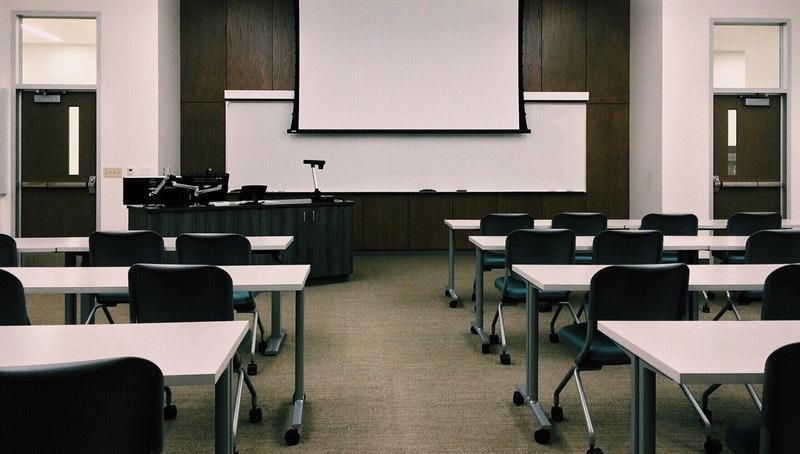Some parents of students at Vankleek Hill Collegiate Institute (VCI) are not pleased that their children have to take courses online (eLearning), particularly when it comes to courses that could be considered as difficult in mathematics and the sciences. They believe one-on-one interaction with teachers is important, especially when hands-on lab work is usually a part of course material.
They have been told that their children have to take the senior-level calculus and biology courses online because VCI is a small school and has insufficient numbers of students to justify in-classroom instruction. Parents do not want to see their children’s access to learning cause them disadvantages because they happen to attend a small, rural school.
Not all of the parents wanted to have their names published out of respect for their children. One of the parents said her son was registered for an online business course but wanted an in-person course.
The parents are concerned the problem will continue for future students.
“Is this going to happen to another cohort?” wondered parent Patricia Foam, who is also a biology teacher at a post-secondary institution near Montréal. She said it is difficult to do a so-called STEM (Science, Technology, Engineering, Mathematics) courses online because of their complexity and practical work.
Online courses are offered completely separate from the in-classroom courses when students make their course selections for the next school year.
“Can’t one teacher do a hybrid (online and in-person) class?” asked parent Carolyn Rozon. She said the hybrid model would allow students to take a course in-person if they wanted.
Students in online courses requiring in-person help are asking teachers at VCI for assistance. The teachers are not obligated to assist but are doing it anyway.
“The teachers are amazing,” Foam said.
There is concern online that courses are putting students at a disadvantage for their post-secondary education plans. Two parents said their children did not want to have to take calculus online in high school. Calculus was required for the university programs the students were interested in pursuing. Instead, students chose community college programs because they would rather not take calculus at all than have to take it online.
The parents are frustrated with the responses they receive from the Upper Canada District School Board (UCDSB) when they express their concerns and want better transparency from the board and school administration.
According to UCDSB Superintendent of Schools Susan Rutters, decisions regarding which eLearning courses will be offered are made based on student interest, or the number of students who request a particular course. Online courses that are not offered by UCDSB may be accessible to UCDSB students through the UCDSB’s membership in the Ontario eLearning Consortium.
Rutters defended the use of eLearning for both academic and organizational reasons.
“We have seen students who want to reach ahead and acquire credits over the summer, or those who like to learn at their own pace outside of a traditional school setting, be successful in completing online courses,” she said.
Rutters emphasized that online courses can offer students more choice when it comes to course selection, especially in small schools.
“eLearning pass rates for UCDSB students are 94 per cent with an average mark of 78 per cent,” Rutters said. She noted 15 per cent of UCDSB students take at least one eLearning course per year.
Many science and mathematics courses include virtual labs and digital simulations to demonstrate key concepts and processes from the curriculum.
Following the most challenging months of the COVID-19 pandemic, Minister of Education Stephen Lecce strongly encouraged having students return to classroom learning after months of online learning. However, Rutters noted students who entered grade nine in the 2020-21 school year were the first required by the Ministry of Education to earn at least two online credits to obtain their high school diploma. The UCDSB offers all compulsory online courses to students.
“Students, with their parents, may opt out of this requirement. However, online learning is now a common component of post-secondary study and workforce training and re-training. Providing students with the opportunity to learn and practice digital skills and competencies is a valuable way to prepare them for life-long learning,” Rutters said.
The Review attempted to contact Lecce for comments about online learning but did not receive a response. The three other school boards serving Prescott and Russell counties were contacted and asked if they require students to take courses online if the board does not deem there is sufficient demand for a course. The Catholic District School Board of Eastern Ontario (CDSBEO), delivers all compulsory courses in person. The Conseil scolaire de district catholique de l’Est ontarien (CSDCEO) also delivers all compulsory courses in person. No response was received from the Conseil des écoles publiques de l’Est de l’Ontario at press time.
The VCI parents concerned about the way online courses are being arranged are considering launching a petition and/or a letter writing campaign requesting changes be made by the UCDSB and Ministry of Education.


